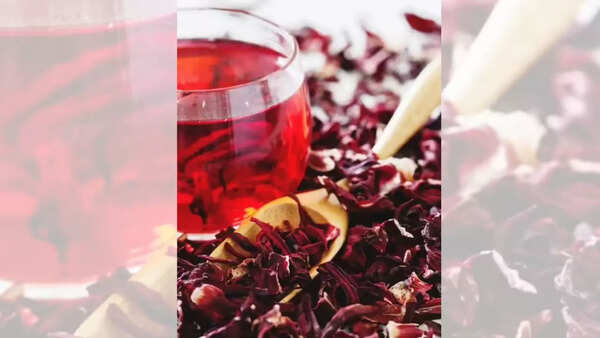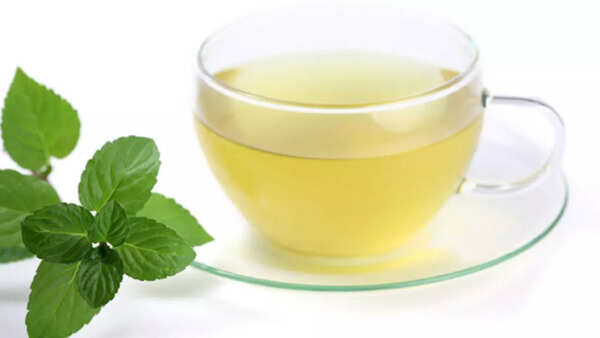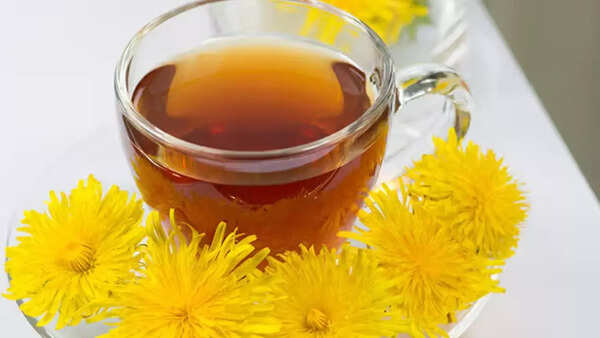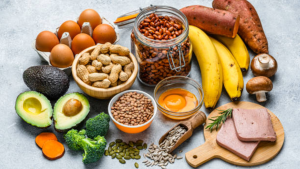Herbal teas, also known as tisanes, are comforting beverages crafted from a blend of herbs, flowers, roots, and spices. Naturally caffeine-free, they offer a diverse array of flavors and health benefits, making them an excellent choice for daily relaxation and overall wellness.
Unlike traditional teas derived from the Camellia sinensis plant, herbal teas are infusions of various ingredients celebrated for their ability to promote well-being and provide both mental and physical comfort. Enjoyed globally, these teas are recognized for their distinct flavors and medicinal properties, offering support for sleep, digestion, and stress relief. For those in search of a healthful and soothing drink, herbal teas are a delicious and beneficial option.
Here are ten herbal teas to consider incorporating into your daily routine:
1. Ginger Tea: Aiding Digestion and Relieving Nausea

Ginger tea, a potent source of antioxidants, has a long-standing reputation for alleviating stomach discomfort and nausea. It proves particularly effective during pregnancy, instances of motion sickness, or in the aftermath of surgery. Furthermore, it may contribute to the prevention of ulcers, the reduction of indigestion, and the easing of menstrual pain.
A natural choice for easing nausea, improving digestion, and alleviating menstrual cramps.
2. Hibiscus Tea: Promoting Heart Health and Cleansing the Body

This vibrant and tart tea variety has the potential to lower blood pressure and reduce LDL (“bad”) cholesterol levels. Research indicates that it can also mitigate oxidative stress in athletes.
Excellent for supporting heart health and reducing oxidative stress.
3. Echinacea Tea: A Powerful Cold Remedy
Popular for its immune-supporting properties, echinacea tea may help to shorten the duration and lessen the severity of common colds.
A tea that enhances immunity and aids in combating colds.
4. Rooibos Tea: Rich in Antioxidants and Beneficial for Bone Health

This caffeine-free South African tea is rich in antioxidants. Initial studies suggest that it may prevent bone loss, which helps in preventing osteoporosis, lower blood pressure, and reduce cholesterol.
Supports both bone and heart health.
5. Peppermint Tea: Calming and Aiding Digestion

Well-known for its ability to improve digestion, peppermint tea can relieve indigestion, cramps, and bloating. It may even provide relief from tension headaches.
A refreshing aid to digestive health.
6. Chamomile Tea: Promoting Calmness and Supporting Sleep

Chamomile is highly valued for its relaxing properties and is frequently used to promote better sleep. In addition, it possesses antibacterial, anti-inflammatory, and liver-protective qualities. It may also help to stabilize blood sugar levels and alleviate PMS symptoms.
7. Lemon Balm Tea: Reducing Stress and Anxiety

Lemon balm is recognized for its calming effects, which assist in lowering stress levels, promoting relaxation, and supporting digestive health.
A comforting tea that soothes both the mind and the digestive system.
8. Lavender Tea: Supporting Sleep and Relaxation

With its floral scent, lavender tea is often used to encourage relaxation, enhance sleep quality, and alleviate anxiety. It also exhibits mild anti-inflammatory properties.
Ideal for fostering evening calmness and promoting deeper sleep.
9. Sage Tea: Soothing Sore Throats and Enhancing Cognitive Function

Sage tea provides both antimicrobial and antioxidant benefits. It can help to ease sore throats, improve cognitive function, and potentially reduce menopausal symptoms.
A versatile herb that benefits the throat, brain, and hormones.
10. Dandelion Tea: Detoxifying the Liver and Acting as a Diuretic

Dandelion tea supports liver health, aids digestion, functions as a mild diuretic, and supplies essential vitamins like A, C, and K, along with minerals such as calcium and potassium.
Newer articles
Older articles
 Smith Eyes Grenada Test Return After Injury Recovery
Smith Eyes Grenada Test Return After Injury Recovery
 Google Maps Boosts Navigation Precision with Fused Orientation Provider Update
Google Maps Boosts Navigation Precision with Fused Orientation Provider Update
 Earth Sciences Minister Rijiju Expresses Frustration Over Atos Supercomputer Delay, Jeopardizing Weather Forecast Upgrades
Earth Sciences Minister Rijiju Expresses Frustration Over Atos Supercomputer Delay, Jeopardizing Weather Forecast Upgrades
 Washington Freedom Snatch Last-Ball Win Over Knight Riders in MLC Thriller; Playoff Hopes Soar
Washington Freedom Snatch Last-Ball Win Over Knight Riders in MLC Thriller; Playoff Hopes Soar
 East Africa Rift: Mantle Upwelling Drives Birth of New Ocean, Study Finds
East Africa Rift: Mantle Upwelling Drives Birth of New Ocean, Study Finds
 Prasidh Krishna Vows to Sharpen Bowling After Costly Leeds Performance
Prasidh Krishna Vows to Sharpen Bowling After Costly Leeds Performance
 Colon Cancer: Don't Ignore These 5 Subtle Warning Signs
Colon Cancer: Don't Ignore These 5 Subtle Warning Signs
 Gavaskar Urges India to Replace Thakur with Yadav for Second Test Against England
Gavaskar Urges India to Replace Thakur with Yadav for Second Test Against England
 Rishabh Pant's Unconventional Batting Style Is Revolutionizing Cricket, Says Greg Chappell
Rishabh Pant's Unconventional Batting Style Is Revolutionizing Cricket, Says Greg Chappell
 Vitamin B12 Deficiency: Cardiologist Explains Symptoms, Sources, and Why You're Always Tired
Vitamin B12 Deficiency: Cardiologist Explains Symptoms, Sources, and Why You're Always Tired